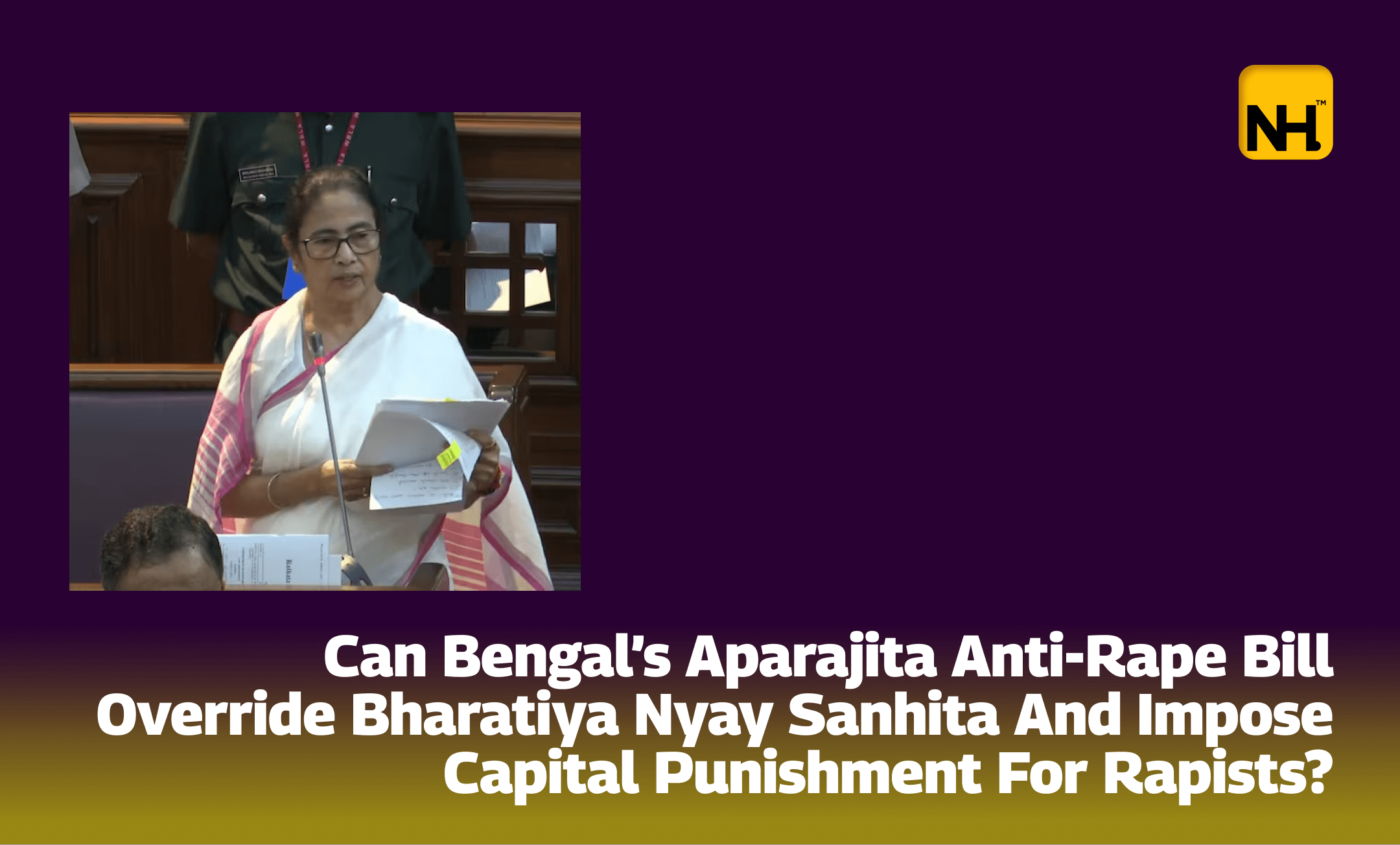The passage of the Aparajita Woman and Child Bill (West Bengal Criminal Laws and Amendment Bill 2024) by the West Bengal Assembly marks a significant and controversial moment in the ongoing battle against sexual violence in India. The bill, introduced by Chief Minister Mamata Banerjee in the wake of the brutal rape and murder of a Kolkata doctor, proposes the death penalty for rapists, particularly in cases where the crime leads to the victim’s death or leaves them in a vegetative state. However, this move has ignited a legal and constitutional debate: can Bengal’s Aparajita Anti-Rape Bill override the central government’s Bharatiya Nyaya Sanhita (BNS) and impose such a stringent penalty?
India’s federal structure allows both the central and state governments to legislate on criminal matters, as these fall under the Concurrent List of the Constitution. However, when a state law conflicts with a central law, the central law prevails unless the state law receives the President’s assent, as outlined in Article 254(2) of the Constitution. This provision enables state legislatures to enact laws that differ from central legislation, provided these laws are sanctioned by the President.
The Aparajita Bill seeks to amend key sections of the Bharatiya Nyaya Sanhita (BNS) 2023, a recently introduced central criminal law, by enhancing the punishment for rape to include capital punishment in specific cases. Under the BNS, the punishment for rape includes a minimum of 20 years of rigorous imprisonment, which may extend to life imprisonment. However, it does not prescribe the death penalty, except in cases involving the rape of a girl under 12 years old. The BNS, thus, sets a baseline for punishment, while the Aparajita Bill seeks to impose even harsher penalties.
For the Aparajita Bill to become law in West Bengal, it must receive the President’s assent, which is not guaranteed. The President, acting on the advice of the central government, may choose to withhold assent, particularly if the bill is seen as conflicting with the central government’s legal framework. Even if the President does grant assent, the bill would only apply within the state of West Bengal, creating a legal disparity between Bengal and other states.
The process of obtaining presidential assent can be lengthy and politically charged. There is no constitutional time limit for the President to make a decision, which means the bill could remain in limbo for an extended period. This delay could undermine the effectiveness of the legislation and frustrate the public’s demand for swift justice.
The debate surrounding the Aparajita Bill is not just legal but also ethical. Proponents of the bill argue that the death penalty is a necessary deterrent in the face of increasing sexual violence. They point to cases like the Kamduni rape, the Unnao rape, and the Hathras case, where justice was delayed or denied, to justify the need for harsher penalties.
However, critics argue that the death penalty is not an effective deterrent and that it risks further entrenching a culture of violence. Legal experts also warn that the imposition of capital punishment in cases of rape could lead to fewer convictions, as judges may be reluctant to impose such a severe sentence. Moreover, the potential for misuse and wrongful convictions is a significant concern in a justice system that is already under strain.
The Aparajita Bill also raises questions about the role of the state in addressing systemic issues of sexual violence. While harsher penalties may provide a sense of retribution, they do little to address the root causes of gender-based violence, such as patriarchal attitudes, inadequate law enforcement, and the lack of support for survivors. A holistic approach, focusing on prevention, education, and social reform, is essential for creating lasting change.
Chief Minister Mamata Banerjee has described the Aparajita Bill as a “historic and model Bill” that could serve as an example for the rest of the country. She argues that the central government has been slow to act on the issue of sexual violence and that Bengal is leading the way in demanding justice for victims.
However, the bill’s passage could also spark a constitutional crisis if it is perceived as undermining the central government’s authority. The central government’s response to the bill will be closely watched, as it could set a precedent for how similar state-level initiatives are handled in the future.



















































































